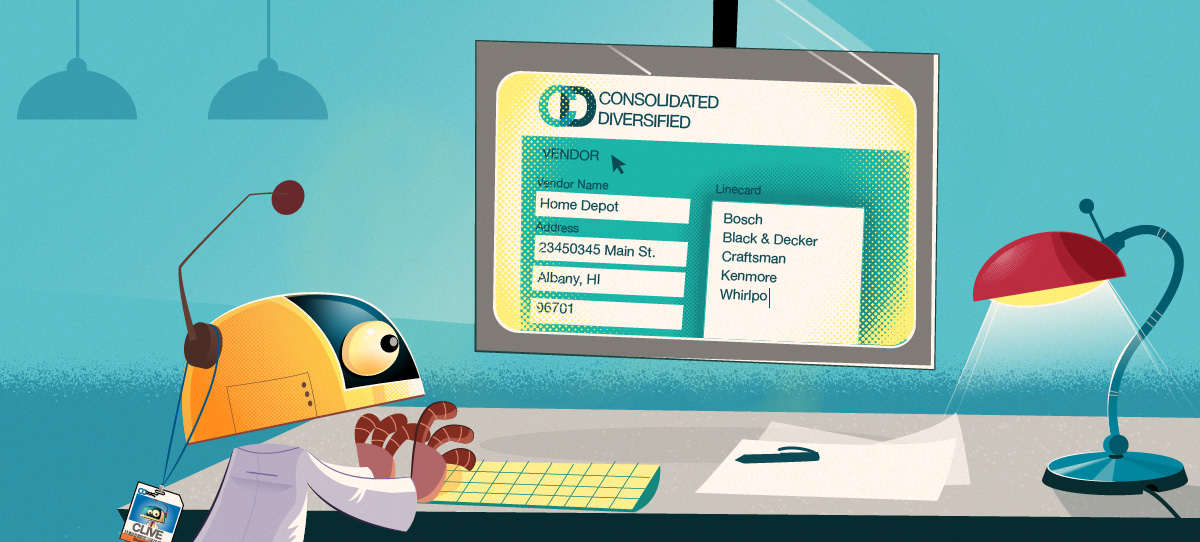Manufacturers
Manufacturers are the entities that make the parts in your database. Examples from the electronics industry include Texas Instruments, Intel, Kemet, and Panasonic. Your own organization is also a manufacturer. Within a particular manufacturer, all manufacturer part numbers must be unique. Therefore, the combination of manufacturers and manufacturer part number should uniquely identify any part.
Manufacturers distribute their products through one or more vendors (such as Arrow, Avnet, Digi-Key, and Mouser). In some cases, a manufacturer also distributes (sells) their own products. In these cases, you will want to setup a corresponding vendor in Aligni and also the corresponding manufacturer – vendor relationship.
Generic Manufacturers
Situations may arise that suggest the creation of a generic manufacturer. In particular, providers of services such as PCB Fabrication, PCB Assembly, or Machining don’t lend themselves to a separation of manufacture and distribution. In these cases, we suggest creating a generic manufacturer for the service (e.g., “PCB Fabricator”) and associating it with the specific vendor that provides the service. This configuration preserves the relationships so that a bare PCB part is setup with the PCB Fabricator as the manufacturer and is then available for RFQ and purchasing from the service providers.
Contacts also play an important role in this relationship. First, Aligni serves as central location to organize your contacts for reference by collaborators. Perhaps more importantly however, keeping contact information in Aligni allows you to email RFQs and Purchase Orders directly from Aligni. We suggest creating a generic manufacturer for the service (e.g., “PCB Fabricator”) and associating it with the specific vendor that provides the service. This configuration preserves the relationships so that a bare PCB part is setup with the PCB Fabricator as the manufacturer and is then available for RFQ and purchasing from the service providers.
“Unknown” or Unspecified Manufacturers
In some industries, only the vendor for a particular part is important or well-established. One example of this is the vast array of mechanical hardware from vendors such as McMaster-Carr. McMaster-Carr is a large distributor of hardware such as nuts, bolts, screws, fittings, etc. Although they are technically a vendor and not a manufacturer of this hardware, the manufacturer is unknown or unimportant for the majority of the products they sell.
In this case, we suggest setting up one manufacturer and one vendor, each called “McMaster-Carr”. Then, put the McMaster-Carr manufacturer on the McMaster-Carr vendor’s linecard. When you create parts in your database that are available from McMaster-Carr, you will enter them as manufactured by McMaster-Carr and use the McMaster-Carr part number.
We use the term suppliers to refer to both manufacturers and vendors collectively.
Vendors
Vendors are the entities that sell parts to you. A vendor is said to be a distributor for a manufacturer if it sells its parts. A manufacturer that they represent is considered to be on the vendor’s linecard.
These relationships are important in Aligni because as you choose parts to purchase, Aligni uses the distribution and linecard relationships to determine which vendors sell a particular part. If the manufacturer and vendor relationships have not been correctly set up, you will not see your expected vendor choices on quotes and purchases. All quotes in Aligni are listed by their corresponding vendor. When you submit a request for quotation or purchase order, you submit it to a contact at a vendor.
Vendor Approval
You may optionally approve vendors and set an approval expiration date. This can be helpful if your organization requires vendor approval based on certification (e.g. ISO 9001). As the expiration date approaches (30 days prior to expiration), your organization owner will receive an email notification of the pending expiration. You can also filter approved vendors by expiration date by selecting the clock icon at the top of the sort set.
Contacts
Contacts are specific individuals (people) and can be associated with multiple manufacturers and up to one vendor. When you submit RFQs or purchase orders, you need to submit them to contacts at the corresponding vendor.
Customers
Aligni also helps you manage your customer relationships. In addition to the customer record itself, you demand estimates are associated customers. Depending on the relationship, it may make sense to define a customer as a specific individual or entity (e.g. Apple Computer) or a distribution channel (e.g. eCommerce or Amazon Channel).
Configuring Relationships
Setting up the relationships between manufacturers, vendors, and contacts is done on the corresponding detail pages for specific records.
- Add vendors to the distribution of a manufacturer on the manufacturer’s detail page. Multiple vendors may be distributors for each manufacturer.
- Add manufacturers to the linecard of a vendor on the vendor’s detail page. Multiple manufacturers may be on the linecard for each vendor.
- Setup contact associations on the contact’s detail page. Multiple manufacturers may be associated with each contact. At most one vendor may be associated with a contact.




